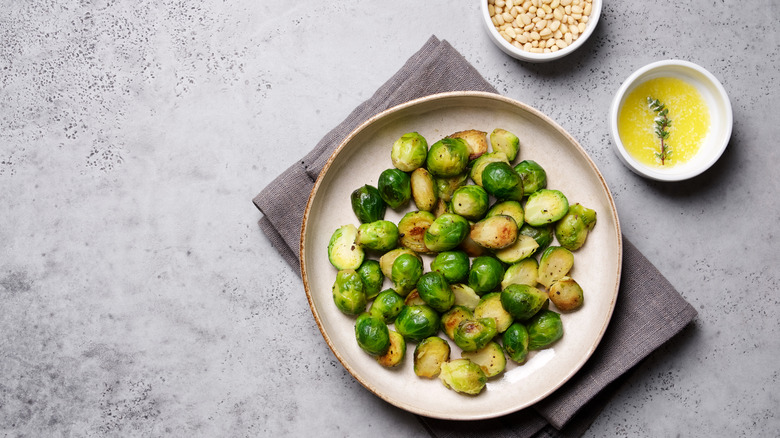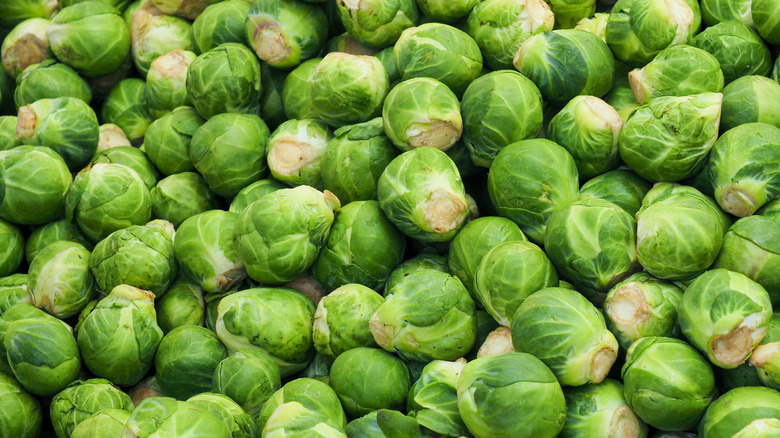What You Should Look For When Buying Brussels Sprouts
Brussels sprouts have their share of critics. Stereotypically speaking, children often refuse to eat them and might try to get rid of them by hiding them in their dinner napkins or feeding them to the family dog. But many adults have come to realize that this veggie can be both nutritious and delicious. According to Taste of Home, Brussels sprouts are rich in vitamins C and K, antioxidants, fiber, protein, folate, carotenoids, and healthy fats. This means they can help with the health of your heart, gut, eyes, and bones, among other things.
The bitterness of Brussels sprouts can discourage some people, but the experts at Livestrong say the way you cook them can help mitigate that taste. They recommend first blanching the sprouts in saltwater and then choosing a cooking method like roasting — not boiling — that allows for caramelization. But it's not just the cooking method that matters; picking the right ones also helps. The fresher the sprouts, the better.
Pay attention to the leaves
So what should you look for when buying Brussels sprouts? When choosing the sprouts, Kitchn recommends paying attention to the leaves. They should be vibrant green with no brown or yellow spots and they should be wrapped in a tight ball. Also watch out for sprouts that have been bagged, since moisture inside the bag can cause the sprouts to soften up and develop brown spots.
Per Southern Living, firmness and size also matter when selecting the best Brussels sprouts. They should not be too soft or too big. Smaller sprouts tend to be sweeter and more tender, while the flavor of bigger ones can taste more like cabbage. The recommendation is to choose sprouts that are between 1 and 1.5 inches in diameter.
The next time you see Brussels sprouts at the grocery store or farmer's market, give them a chance. They can be delicious and it starts with choosing the right ones.

